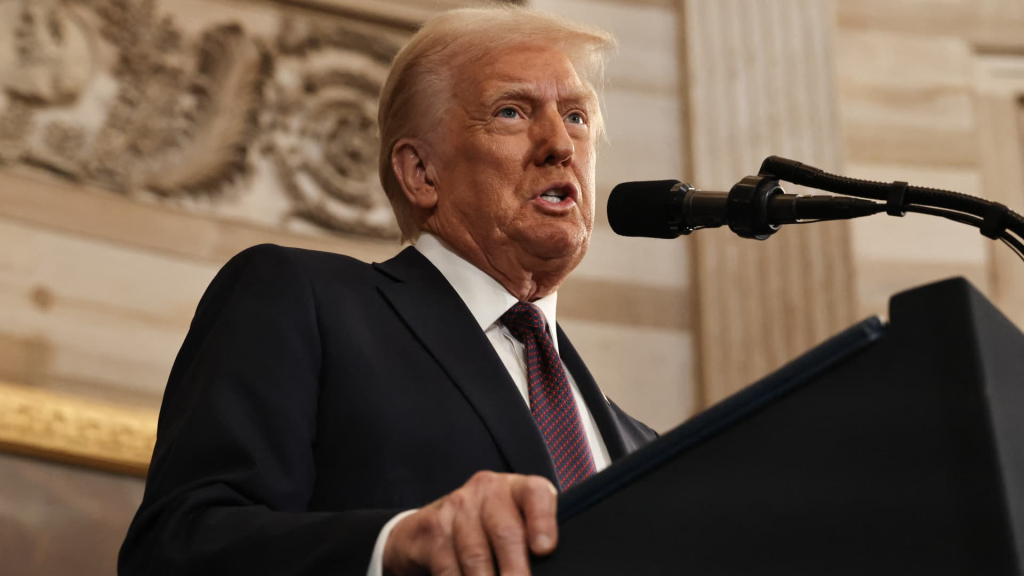In a significant escalation, just five months after promising to serve as a peacemaker and a unifier, President Donald Trump authorized military strikes against Iran, targeting three key nuclear facilities in Fordo, Natanz, and Isfahan.
During his inaugural address on January 20, 2025, Trump remarked, “We will measure our success not only by the battles we win but also by the wars we end – and perhaps most importantly, the wars we never get into.”
Trump has previously heralded his legacy as that of a “peacemaker and a unifier,” yet his actions are now calling that claim into serious question.
The U.S. military’s assault on Iran constitutes its first direct action since the commencement of the Israel-Iran conflict earlier this month.
In a post on Truth Social, the President confirmed the strikes, highlighting that a “full load of BOMBS” was deployed at the primary site in Fordow.
Reports emerging from Iranian state media indicated casualties and significant infrastructure damage but did not provide a detailed account of the attack, according to Reuters.
This military operation represents a stark departure from Trump’s previous assurances regarding non-intervention in foreign conflicts. It also sharply contrasts with his campaign promises in 2024, where he vowed to “prevent World War Three” and restore order in the Middle East.
At a rally in Pittsburgh last November, Trump stated, “I will stop the chaos in the Middle East, and I will prevent world war three. You’re very close to World War, you’re very close, and we have people that are not the right people to handle that. They are grossly incompetent.”
The President has consistently expressed his determination to thwart Iran’s acquisition of nuclear weapons. On Election Day last year, he declared that Iran “just can’t have a nuclear weapon.”
This commitment has traditionally been paired with pledges to avoid engaging in military conflict. “I want peace in the Middle East. I want peace. I did the Abraham Accords. I want peace in the Middle East,” he stated during a rally in Greensboro last October.
Only a week following Israel’s military actions against Iran, the latest U.S. strikes indicate a direct confrontation with Tehran. This shift is notable, especially considering that just 48 hours prior, Trump had suggested that the U.S. would give diplomatic resolution efforts “two weeks” before making further decisions regarding military action.
“Based on the fact that there’s a substantial chance of negotiations that may or may not take place with Iran in the near future, I will make my decision whether or not to go within the next two weeks,” he said in a Thursday statement from the White House.
Concerns surrounding Iran’s nuclear capabilities are longstanding. Trump has often referred to his decision to withdraw from the Iran nuclear agreement, known as the Joint Comprehensive Plan of Action (JCPOA), as proof of his hardline stance. During a town hall in Georgia last October, he called exiting the deal “the single biggest thing I did” and attributed his decision to paving the way for the Abraham Accords.
As U.S. military actions escalate in Iran, Trump’s promises of fostering peace face intense scrutiny. This latest development raises numerous questions about the future of U.S.-Iran relations and whether this marks the definitive end of diplomatic efforts or the inception of a broader conflict.


























